Get Started for FREE
Sign up with Facebook Sign up with X
I don't have a Facebook or a X account

 Your new post is loading... Your new post is loading...
 Your new post is loading... Your new post is loading...

'Timothy Leyfer's curator insight,
January 24, 2014 12:08 PM
For those of us marketing High value products online this great little tool can help us gather and organize the necessary information we need to help others learn about a specific subject - Chk out what Robin says abou this tool:
"Few people know that it is actually possible to curate Wikipedia content into custom print books or PDF / OpenDocument ebooks that contain exactly the content you want in the order you specify." (Robin Good)
For thosse of us marketing online this tolol is worth checking out Tim 
Anake Goodall's curator insight,
January 24, 2014 5:52 PM
I just love this democratisation of everything; here's self publishing delivered to a keyboard near you courtesy of Wikipedia ... 
aufaitLibrarian's curator insight,
January 27, 2014 10:04 PM
It's worth keeping in mind that some 'publishers' try to sell books based entirely on Wikipedia content.

Daniel Pastor Peidro's curator insight,
January 20, 2014 3:02 AM
Se puede utilizar para crear un "periódico escolar". 
Una Sinnott's curator insight,
January 20, 2014 5:35 PM
This could be very useful for curating news around topics you're covering.

Stephen Dale's curator insight,
January 17, 2014 11:28 AM
Looks like a useful - and free to use - resource for the commited data analyst/researcher.

Alfredo Corell's curator insight,
January 23, 2014 3:25 PM
A very useful guide from one of the Pioneers in Content Curation 
Anne-Laure Conté's curator insight,
December 14, 2015 3:04 AM
What about a test on this matter at the baccalaureat ?

rodrick rajive lal's curator insight,
January 7, 2014 1:27 AM
How True! "Every act of journalism is an act of curation" - that is as long as what is being reported is accurate and unbiased!

M Dolores Solé Gómez's curator insight,
January 4, 2014 5:56 AM
Great! Thank you for sharing this tool. 
Terry Yelmene's curator insight,
January 5, 2014 2:35 AM
This may be useful, if it proves easy enough.

pilar arroyo's curator insight,
March 5, 2014 1:08 PM
Scoop del maestro Robin Good en el que se evidencia la necesidad de preservar el contenido online, especialmente en el caso de información institucional y gubernamental que es la que tiene mayor índice de desaparición.

Robin Good's comment,
December 18, 2013 2:45 PM
Beth, that's wonderful and very useful. Thank you so much for including me in your slideshow, article and presentation, I am very honored by it. Thanks also for sharing this valuable piece of reference and for having shared the collaborative approach you have chosen during the workshop to motivate people to think more and deeper about their own curation. Thank you.

Lori Wilk's curator insight,
December 20, 2013 11:15 PM
This is an excellent visual explanation of content curation, the goals, and the content curation process. |

Gianfranco Marini's curator insight,
February 26, 2014 10:44 AM
Traduco approssimativamente quanto scritto da Robin Good.
Una raccolta di risorse sulla content curation che raccoglie diversi articoli 60, (in lingua inglese) e li organizza in 8 categorie principali:
1. perché c'è bisogno della curation? 2. Che cos'è la digital curation? 3. aggregazione o curation? 4. tutto sull'audience 5. dove è possibile trovare contenuti di valore 6. che cosa selezionare? 7. strumenti di curation 8, contributi dei partecipanti del corso
Gli articoli sono stati ordinati in categorie utilizzando Pearltrees, questo lavoro rappresenta il risultato di un corso sulla content curation 
Ali Anani's curator insight,
March 4, 2014 12:37 AM
Curate and scoop it- this one shows you how to curate effectively 
Christoph Meier's curator insight,
March 11, 2014 9:38 AM
Robin Good's insight:
Here's a valuable resource on content curation, "distilled" by the students of the DCurate MOOC lead Martin Couzins and Sam Burrough which organizes over 60 different articles, guides and tools on the topic.
This resources collection is presented in the form of a Pearltrees interactive map, organized into eight sections:
1. Why Do We Need Curators
2. What Is Digital Curation
3. Aggregation vs. Curation
4. It's All About Audience
5. How Do We Find Valuable Content
6. How Do You Decide What To Curate
7. Curation Tools
8. Contributions from participants
If you are new to content curation this is a good resource to bookmark and keep as a reference.
DCurate MOOC sign-up: http://www.curatr3.com/portfolio-item/how-to-be-an-effective-digital-curator/ ; See also: http://sco.lt/99a09Z ;
Free to use.
Explore the guidemap: http://bit.ly/digitalcuratorguidemap ;
See also: https://gibbon.co/RobinGood/content-curation-guide ;

Sandra Carswell's curator insight,
January 27, 2014 12:02 AM
Cornell note-taking video. Handy to to teach students. 
Zhang Meilan's curator insight,
April 13, 2014 8:24 PM
如何策展你所阅读的任何内容的简单学习过程:看奈尔笔记方法。 康奈尔笔记法将笔记本分为三栏:大区域的主栏、条目栏(线索栏)、总结栏。 记笔记方法为”5R's”法: 1.Record- 在主栏中,尽可能多地记录一些重要事实、思想、概念等。 2.Reduce,归纳- 在线索栏,将这些事实,思想和概念归纳概括为一个词汇、或一句短话。 3.Recite,背诵 - 利用线索栏的提示,尽可能全面、而非机械地,用你自己的语言复述你所记录的主栏中有关讲座内容的事实、思想,然后对照笔记确认你所讲的。 4.Reflect,反思 - 思考这些材料与课程、单元/被讨论的科目之间的关系,这部分内容卸载总结栏。 5.Review,总结 - 每周花10分钟快速回顾你的笔记,你将会记住你所学习的大部分内容。 Thanks to Peter Mellow, and catspyjamasnz.

Lori Wilk's curator insight,
February 2, 2014 10:21 PM
This article details that there are so many aspects of content curation to consider and tools that can make each of these more managable and the process more efficient.

Deanna Dahlsad's curator insight,
January 18, 2014 3:17 PM
What if we considered content curation as a value, not just a means to market products & services? 
Gina Paschalidou's curator insight,
January 20, 2014 12:06 PM
Tips to improve curation and benefit both you and other users 
'Timothy Leyfer's curator insight,
January 24, 2014 1:20 PM
"Explain, always clearly why something you are curating/communicating is relevant. Contextualize."

Stephen Dale's curator insight,
January 18, 2014 12:28 PM
Useful as a backup to your regular feed reader (I use Feedly - export as an OPML file) or to share your RSS subcriptions, or to discover, search and explore other interesting RSS feeds by keyword, author or tags or by the most popular: http://www.feedshare.net/popular/ ;
Search it: http://www.feedshare.net/search/ ;
Excellent curation tool.

Louise B-Johnston's curator insight,
January 16, 2014 7:02 AM
I can't wait to try this out! It would be great to be able to filter what I want to see, rather than rely on FB doing it for me & often getting it wrong! 
laura mata's curator insight,
January 16, 2014 9:24 AM
Filtra los contenidos que sí o que no sdeseas ver...

Brian Yanish - MarketingHits.com's curator insight,
January 12, 2014 6:25 PM
I like this quote from the article "Curation is about people. It’s about knowing what people want, when they want it, and how they want it. As smart as computers are (and will be), I think we all appreciate the front-and-center engagement of humans with high degrees of expertise in certain subjects, guiding the curation process." 
Lori Wilk's curator insight,
January 12, 2014 7:28 PM
Content curation will continue to grow and curators will get more help from computers to get the work done.

Claude Terosier's curator insight,
January 13, 2014 2:44 AM
"we should worry about search engines becoming the arbiters of truth." De l'importance de comprendre comment on accède à l'information et de reprendre la main. 
Stephen Dale's curator insight,
January 13, 2014 5:58 AM
People who use Google are given the impression that they are interacting with the data out there, but they are actually interacting with Google and its view of the world.
"They are prediction engines that constantly refine a theory about who you are and what you are going to do or want next. Together, they create an universe of data for each one of us." Or in other words, is our acceptance of what we see in search results eroding our ability (or willingness) to consider alternatives and employ critical thinking? 
Mrs. Dilling's curator insight,
February 13, 2014 11:52 AM
My favorite statement, "we must always be aware and well informed about the intentions of companies, and never stop having multiple options for any service."
This article was an eye opener for me. I had never questioned Google before.

malek's curator insight,
January 4, 2014 8:26 AM
A frowing different species in the Storytelling kingdom. Save it in your Google Doc, enjoy at your leisure.

Jeff Domansky's curator insight,
October 3, 2014 10:54 AM
Robin Good has done a phenomenal job of gathering content discovery tools and putting them into categories for easy search and even easier use. 
Roberto De Pedrini (Telnext - Italy) - Twitter: @depetwi's curator insight,
October 4, 2014 2:39 AM
This is an Off-Topic but interesting !

Donella Marie Muzik's curator insight,
January 7, 2014 11:09 AM
A really wonderful way to describe a very important concept 
Eileen Forsyth's curator insight,
January 17, 2014 12:17 PM
Wow, this is what I've been thinking I should have my independent study kids doing!

Stephen Dale's curator insight,
December 19, 2013 3:51 AM
A useful summary of the current shortcomings in content curation tools and services, and what we features and innovations we might see in this developing market. From the author:
"In the near future it is likely that new content curation tools will provide more dedicated features for specific application and uses while becoming more aware of user needs that so far have not been taken into serious consideration (attribution, archiving, monetizing). While large content curation hubs and platforms are likely to start realizing that their best value yet to be extracted is in the content being curated by their users, new tools will likely target more specific and professional uses rather than the general public needing simply to collect and repost content on their blog or social media channel."
SMOOC's curator insight,
February 20, 2014 1:27 PM
Interesting write up on content curation tools from Robin Good (pt. 2)
Tanja Elbaz's curator insight,
November 26, 2023 5:34 PM
|





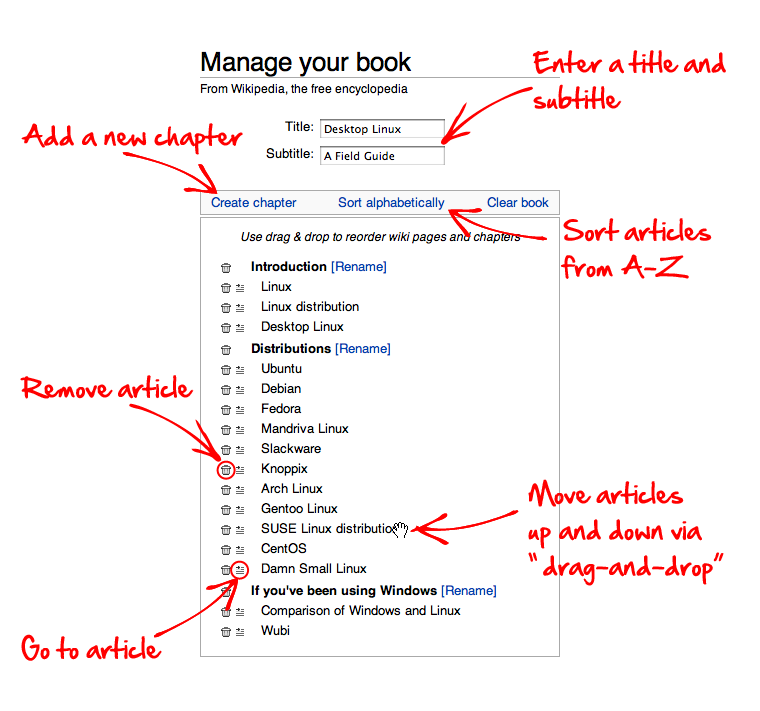
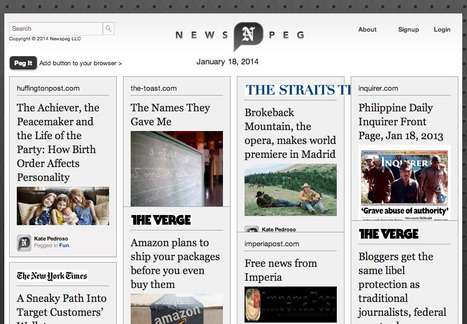

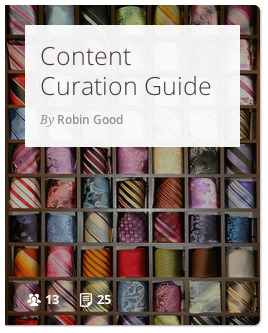

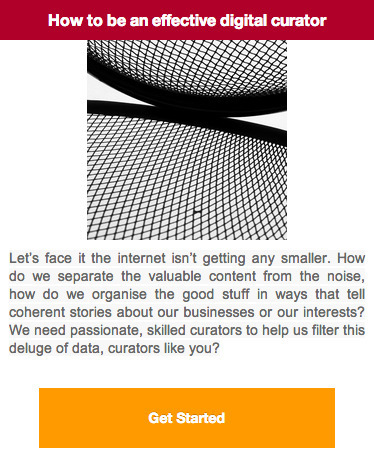
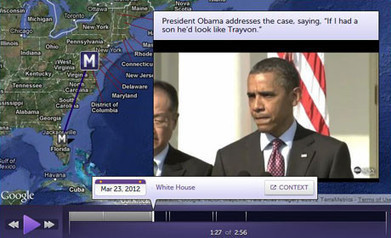

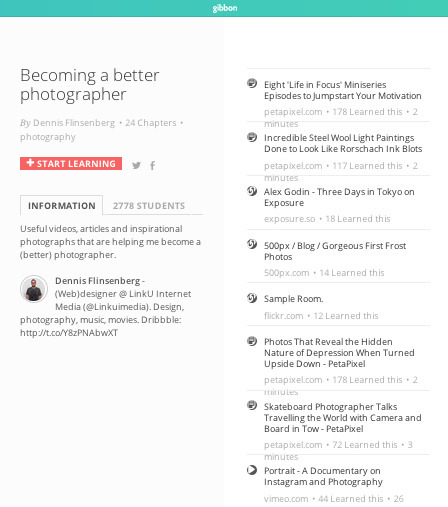

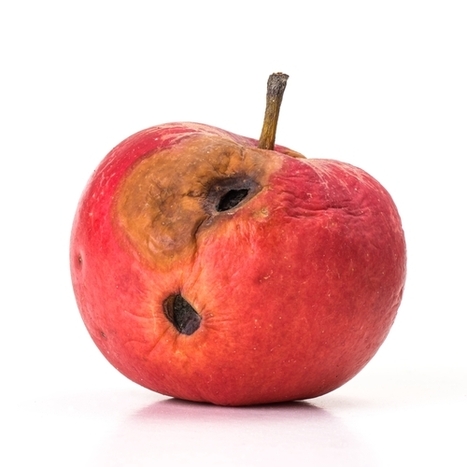



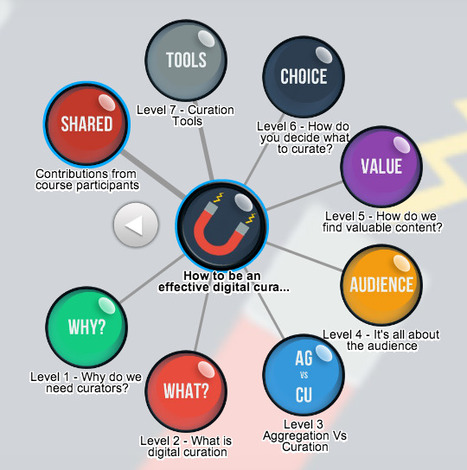




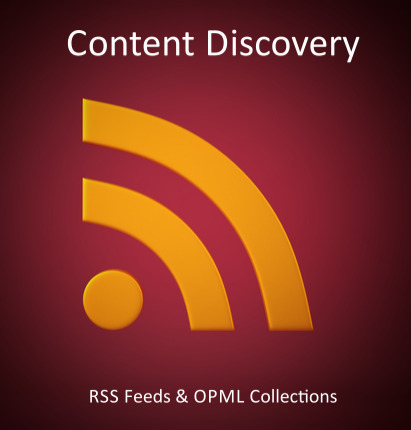

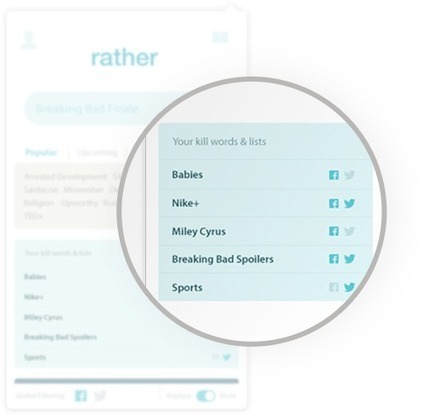


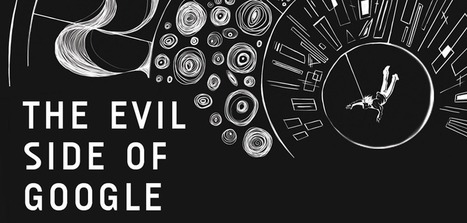
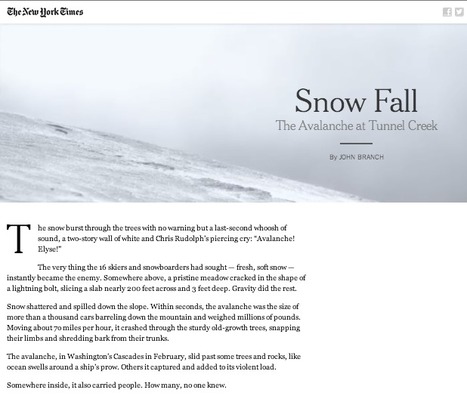
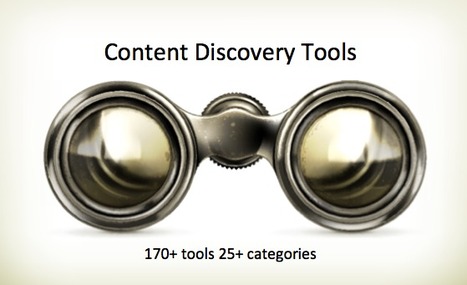

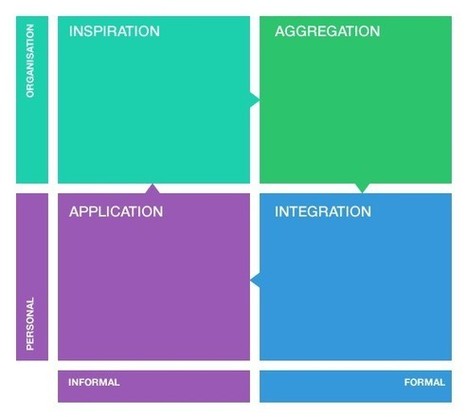
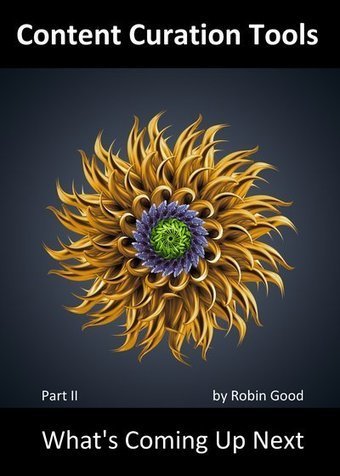





New inspiration!
Smart advice here
Useful explanation